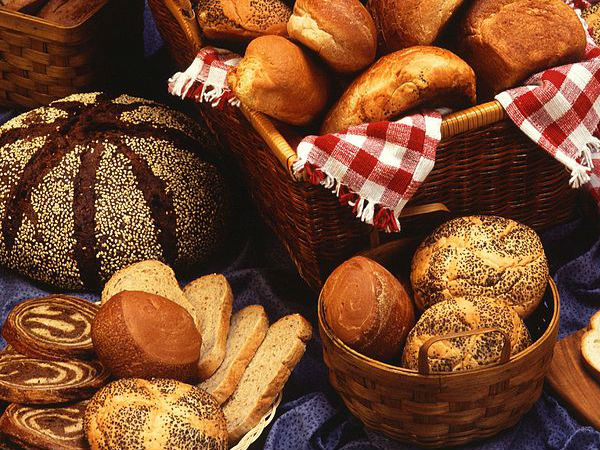Over the years, there have been countless fad diets that have caught our attention. People have tried everything from the Caveman Diet, to the more popular Atkins diet.
While some have remained eminent in our society, the cultural interest in many of these diets eventually wane due to concerns about the true healthiness of such extreme dieting.
Consumers eagerly cut out entire food groups from their diet – on a quest to improve their physical, mental and spiritual health – without thinking of the potentially life-threatening consequences it could have.
This tinkering with personal health is largely an exercise in self-diagnosis, and the current boom in the gluten-free trend is indicative of this larger cultural behaviour.
Lately, gluten has gained a bad reputation in the dieting world. People trying to lose weight are stocking up on gluten-free foods and grocery stores are certainly catering for the change.
Oddly enough, it seems the coeliac population – the people who genuinely need gluten-free food – have little to do with the current surge in gluten-free products.
A US survey conducted by the Hartman Group reveals that only five per cent of people buying gluten-free products actually have coeliac disease – a permanent sensitivity to gluten, a protein found in wheat, rye and barley.
Those with coeliac disease react abnormally to gluten and have no choice but to cut the protein composite out of their diets entirely, a task that is much harder than it seems.
Adelaide resident, Hannah Frost, only recently found out that she was gluten intolerant and she said it took her a while to eliminate gluten from her diet entirely.
“I had tried it a few times but didn’t really know much about it. I didn’t realise I was actually still consuming a small amount of gluten in things like lollies, gravy and things like that,” she said. “This is the first time I have actually been 100 per cent gluten-free.”
What makes it even harder for those who genuinely need gluten-free food is the significant price rise of gluten-free alternatives.
“Gluten-free foods are easy to find they’re just more expensive,” said Frost, “which is annoying considering I’m not choosing to eat gluten-free to lose weight or something, I’m doing it to feel better and not have a stomach ache everyday.”
So why would anyone choose the expense and inconvenience of a gluten-free lifestyle unless they absolutely had to?
A big misconception in the dieting world is that gluten-free is synonymous with healthy. Consumers are noticing the words ‘gluten-free’ marked largely on packaging, assuming that something undesirable has been taken out of the product.
However, to those without gluten intolerances or coeliac disease, cutting out gluten isn’t necessarily the healthiest thing to do – nor the best when it comes to losing weight.
Accredited dietician, Ashlee Gervasoni, says the problem arises when people eliminate gluten without replacing the nutrients needed.
“I hear of many people just putting themselves on a gluten-free diet… People are cutting out gluten and aren’t supplementing correctly or meeting nutritional requirements.”
The second myth is that the gluten-free diet is a sure way to lose weight.
The Hartman Group study shows 33 per cent of people who purchase gluten-free products do so for their nutritional value and another 25 per cent go gluten-free to assist with weight loss.
However, if followed properly, a gluten-free diet could in fact lead to weight gain. Many gluten-free alternatives actually contain more added fats and sugars than their gluten-containing counterparts, making them surprisingly fattening.
Dieters buying gluten-free products may find that they’re still getting the things they should be cutting out while losing many of the nutrients they actually need.
“In actual fact, a lot of gluten-free products have a lot more carbs than those with gluten,” said Gervasoni.
Like most fad diets, a big problem is that the diagnosis is largely undertaken without consultation of a medical professional or the appropriate medical tests.
In this case, Gervasoni says it is clever marketing and false assumptions of its health benefits that are to blame for the trend of self-diagnosis of gluten-free lifestyles.
“I think with all the marketing, people think that being gluten-free is healthier, when in actual fact the only people that need it are those with gluten intolerances,” she said.
This latest diet, made famous by celebrities including Miley Cyrus and Gwyneth Paltrow, fits neatly within the realm of self-diagnosis that consumers strongly adhere to.
While claims of the miraculous gluten-free diet continue to spread online, Gervasoni says she doesn’t know of any evidence to support claims that going gluten-free helps anything other than coeliac disease or diagnosed gluten intolerances.
Until this fad passes, Gervasoni suggests leaving the gluten-free eating to those who actually need it.
“If you haven’t been diagnosed then there’s no reason to restrict unnecessarily.”
 Betony Pitcher is in her final semester of a Bachelor of Journalism at La Trobe University and the deputy editor of upstart. You can follow her on Twitter: @betonyjade
Betony Pitcher is in her final semester of a Bachelor of Journalism at La Trobe University and the deputy editor of upstart. You can follow her on Twitter: @betonyjade
Photo: Wikicommons







